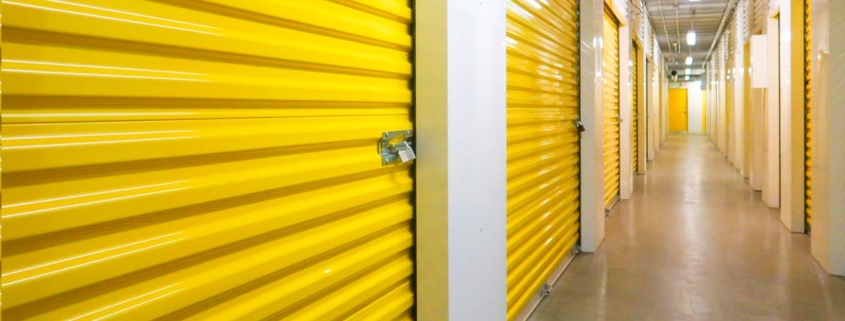Downtown U-Lok Storage Blog
Keep up with the latest News postings!

Cleaning out a storage unit, whether due to inheritance, a long-overdue clean-up, or a relocation, can indeed feel like a monumental task. Here’s a list of steps and tips and practical suggestions to efficiently declutter and manage the contents of a storage unit.
Preparing to Clean Out a Storage Unit
- Inventory assessment: Begin by taking stock of what’s inside the storage unit. Note the large items, the number of boxes, and any notable contents. Photos can be helpful for keeping track of items.
- Enlist help: Coordinate with friends or family to assist, breaking the workload into manageable tasks. Emotional support is key, especially when dealing with sentimental items.
- Organize a processing area: Set up a space for sorting items, ensuring it doesn’t block access for others.
Cleaning Out Your Storage Unit
- Sort items: Use the four-box declutter method (keep, toss, donate/sell, store) to categorize items. This helps in making decisions on what to do with each item.
- Stay focused: Avoid getting sidetracked. If necessary, consider hiring a professional organizer for guidance and efficiency, especially in emotionally difficult or large-scale clean-outs.
Getting Rid of Storage Unit Stuff
- Trash removal: Dispose of all trash first to immediately reduce clutter.
- Donations: Identify items for donation and arrange for their pick-up or drop-off. Many organizations offer free pick-up services.
- Selling items: For items worth selling, consider online platforms (e.g., Craigslist, Facebook Marketplace, eBay, Etsy) or local options like garage sales or flea markets hosted by storage facilities.
Additional Tips
- Be decisive: Challenge yourself to let go of items you no longer need. This not only frees up space but also reduces future clutter.
- Organize for future access: If you continue to use storage, organize your storage unit in a way that makes items easy to access, possibly using shelving or labeled boxes.
- Consider storage needs: If your clean-out reveals a need for different self storage unit size, check with the office staff for upsizing and downsizing options.
Cleaning out a storage unit doesn’t have to be overwhelming. With an organized approach, the right help, and a clear plan for disposal, donation, or sale of items, you can tackle this project effectively. Always remember to take breaks as needed and keep your end goal in mind. This process can be an opportunity for reflection, letting go, and making positive changes, whether you’re decluttering your life or assisting someone else in doing so.

Are you curious about the ins and outs of wine storage? If you’re a wine company, understanding how to properly store your wine is crucial for preserving its flavour and quality. In this article, we’ll address some of the most common questions about wine storage, including cost considerations, factors that impact storage rates, and the best long-term self storage solutions.
How Much Does Wine Storage Cost?
The cost of wine storage can vary depending on several factors, including location, storage unit size, amenities, and added security measures. Larger collections or those requiring specialized temperature-controlled self storage units may incur higher costs. It’s essential to consider your specific self storage needs and budget when selecting a self storage facility for your wine collection. If you have any questions about self storage for your wine collection, please contact us and we will be happy to answer your questions
What Factors Affect the Cost of Wine Storage?
Several factors can influence the cost of wine storage:
- Location: Self storage rates may vary based on the geographic location of the facility. Urban areas tend to have higher storage rates compared to rural areas.
- Storage Unit Size: The size of your wine collection will determine the size of the self storage unit you need. Larger collections may require larger units, resulting in higher monthly fees.
- Ideal Wine Conditions: Optimal temperature, humidity, and lighting conditions are essential for preserving wine quality. Self storage facilities offering specialized temperature-controlled units may charge higher rates for maintaining these conditions.
- Added Security: Facilities with advanced security features, such as video recording and gated access, may have slightly higher storage fees.
Does It Matter How Wine Is Stored?
Absolutely! Proper wine storage is imperative for maintaining its quality and flavor. Fluctuating temperatures, exposure to light, and inadequate humidity levels can all affect the taste and longevity of wine. Storing wine in a controlled environment, such as a temperature-controlled storage unit, helps minimize these risks and preserves the integrity of the wine.
How Does Humidity Affect Wine Storage?
Humidity levels play a significant role in wine storage. High humidity can cause wine corks to dampen, while low humidity can dry out the cork, both of which expose the wine to air and increase the risk of oxidation. Maintaining the proper humidity level (typically between 65% and 70%) helps prevent oxidation and ensures the wine remains in optimal condition.
What Is the Best Long-Term Wine Storage?
For long-term wine storage, it’s essential to prioritize temperature stability and protection from light and vibrations. Consider options such as a custom wine cellar, a dedicated wine refrigerator, or a self storage unit that offers ideal conditions for preserving wine quality over time. Investing in proper storage ensures that your wine ages gracefully and maintains its taste and aroma for years to come.
Understanding the key factors and considerations involved in wine storage can help you make informed decisions about preserving your valuable wine collection. By selecting the right self storage facility and maintaining optimal storage conditions, you can enjoy your favorite wines at their best for years to come.
